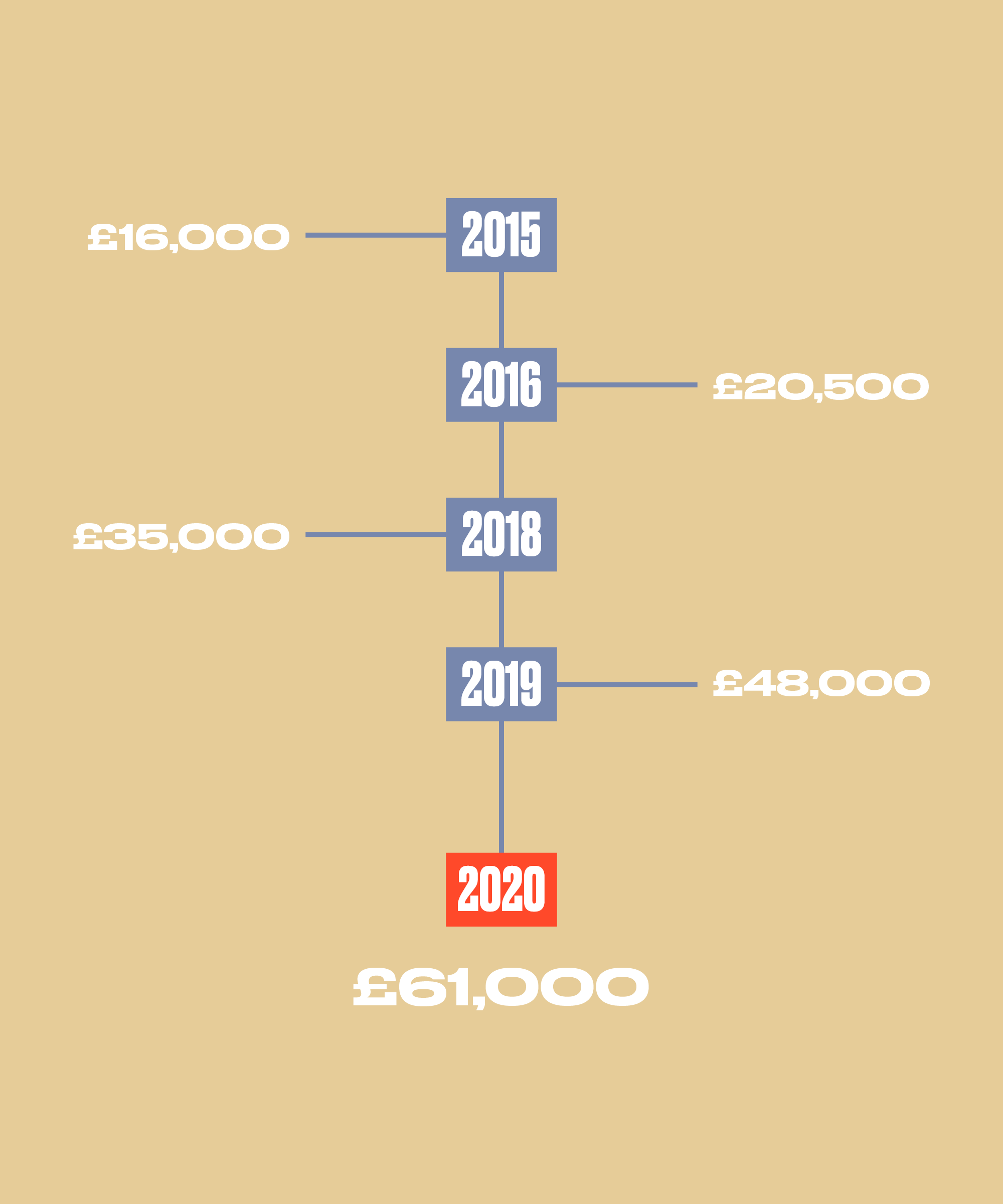Been in the workforce for at least five years and interested in contributing your salary story? Submit your information here. All published stories receive £100.
Age: 27
Location: London
Current industry and job title: Satellite communications, global channel account manager
Current salary: £61,000 (includes 30% bonus).
Number of years employed since school or university: 6
Starting salary and year: £16,000 in 2015
Biggest salary jump: £14,000 in 2018 – from £21,000 to £35,000
Biggest salary drop: It hasn’t dropped since I started working.
Biggest negotiation regret? The salaries of my first two jobs. Early on in my career I was so grateful to have a job and a monthly paycheque that I didn’t feel worthy enough to negotiate a salary. I should have negotiated on salaries for my first two roles but instead took whatever I could get, which turned out to be barely minimum wage of £16,000, living in London. If I had sat down and actually worked out the amount that those salaries would leave me to live on at the end of the month, I might have made more sensible decisions in terms of the jobs I accepted instead of accepting the first job offers that I received.
Best salary advice: My biggest salary increase came from taking my biggest career leap and sometimes you have to take risks if you want to succeed. That being said, there are benefits to staying at a company that offers clear progression, recognises your hard work and supports your career development through upskilling. My biggest piece of advice to anyone is don’t be afraid to move into an industry that you have little experience in – there are a lot of skills and qualities that you can focus and draw upon from previous jobs that often count for more than industry experience early on in your career. There is no point in staying in a job where you are unhappy and feel underpaid. Looking for a new job is short-term pain, long-term gain!

There wasn’t an opportunity to negotiate as this was pretty much the standard fashion intern salary at the time but I was glad to have a job and be moving to London.
I didn’t really understand the implications of a £16,000 salary when I took the job. By the time I’d paid tax, rent (£700 a month) and transport to work, I was left with around £400 a month but I made it work somehow – barely, at times – and it was worth it to live in London as a fresh-faced 22-year-old.

I got a job at a licensing and branding agency as a coordinator and was so pleased when they offered me £20,500 as this meant I wouldn’t have to borrow money from my younger brother to get to work some days. I didn’t really give much thought to the salary and that this was still relatively low (for London, at least). I was given an incremental pay rise of £1,000 after working there for a year; in hindsight I should have pushed back and negotiated a higher pay raise but I didn’t feel confident enough in my experience at the time to have that conversation with my boss. I was micromanaged to within an inch of my sanity and that, combined with the low salary, was the first step I needed to start looking for new jobs. The day I handed in my notice after accepting a new role was so exciting!

I landed a 12-month technical apprenticeship contract at a large telecommunications company, which is a government-backed scheme that provides skills and training with the aim of progressing into a full-time role at the company after the 12 months. The experience came with training and in turn so did my self-confidence. My role was challenging as I was starting from scratch in terms of my industry knowledge but my company supported my progression and kept me on after the 12-month technical sales training ended. I was given a £10,000 bonus for completing my training and passing my apprenticeship.


I am about to negotiate another pay rise as my accounts are performing very well since I have been managing them and will mention the fact that my raise was not backdated for the six months between my promotion and the end of the pay freeze.

Like what you see? How about some more R29 goodness, right here?
Salary Story: I Thought I Didn’t Have Enough Exper